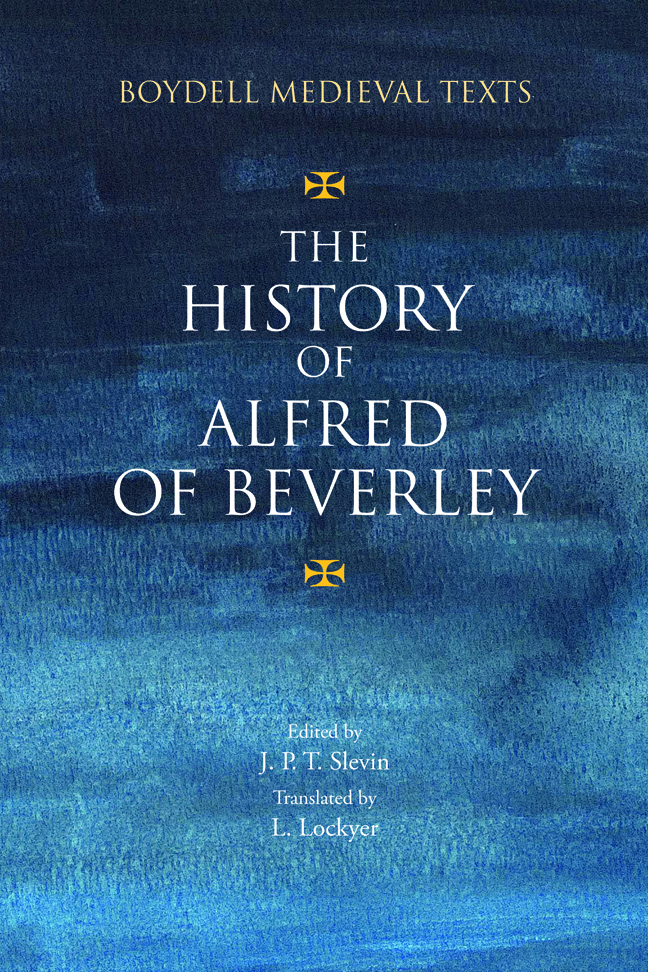Text and Translation
Published online by Cambridge University Press: 17 February 2024
Summary
Aluredi Beuerlacensis Historia
Incipit praefatio magistri Aluredia Beuerlaci thesaurarii ecclesiae sancti Johannis Eboracensis archiepiscopi in historia de gestis regalibus regum Britanniae, uidelicet a Bruto, Britonum rege primo, usque ad Normannorum tempora per annos amplius quam duo milia; ab aduentu uero Normannorum usque ad annum .xxviii. Henrici regis primi per annos .xliiii. historias Romanorum, Britonum, Anglorum, et multorum historiograthorum mirabiliter et subtiliter abbreuiat et concordat.
[Incipit prologus in prima particula.]
In diebus silentii nostri, quando non poteramus reddere Deo quae Dei erant, et tamen cogebamur reddere Caesari quae Caesaris erant, quia propter praesentem excomunicatorum multitudinem secundum Londoniensis concilii decretum a diuinis cessabamus, et regiis exactionibus afflicti uitam taediosam agebamus, grassante oppressione qua, expulsis ad regis edictum de sedibus suis ecclesiae nostrae columpnis, diu grauiterque uexatus sum, pene in desperationem cum pene solus essem decidi. Sed propitia miserantis Dei manu de baratro desperationis
The History of Alfred of Beverley
Here begins the preface of Master Alfred of Beverley, treasurer of the church of St John, archbishop of York, to the history of the royal deeds of the kings of Britain, that is, from Brutus, the first king of the Britons, to the time of the Normans, a period of more than two thousand years and from the coming of the Normans to the twenty-eighth year of King Henry I's reign, a period of forty-four years. He admirably and accurately summarises and reconciles the accounts of these times by the Romans, the Britons, the English, and many other historians.
[Here begins the prologue to chapter I.]
In the days of our silence, we could not render unto God the things that were God's yet were forced to render unto Caesar the things that were Caesar’s. For we withdrew from divine services because at that time a large number of people had been excommunicated under the decree of the Council of London, and, worn down by royal taxation, we lived tedious lives. The oppression which had troubled me long and sorely continued to assail me and, as the pillars of our church were driven from their sees by royal edict, I nearly fell into a state of despair, for I was almost alone.
- Type
- Chapter
- Information
- The History of Alfred of Beverley , pp. 1 - 10Publisher: Boydell & BrewerPrint publication year: 2023



